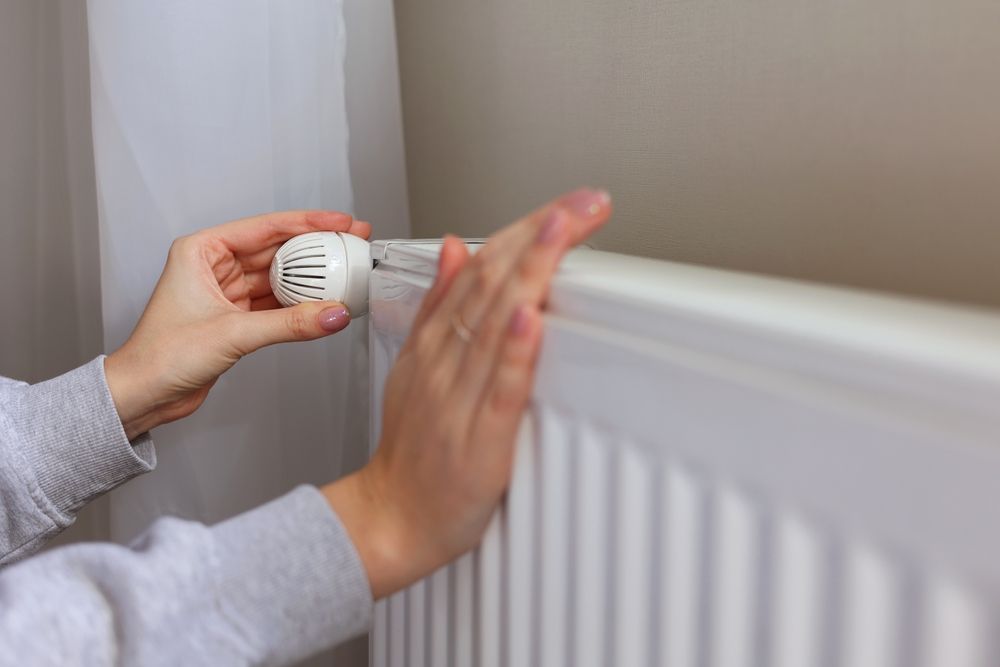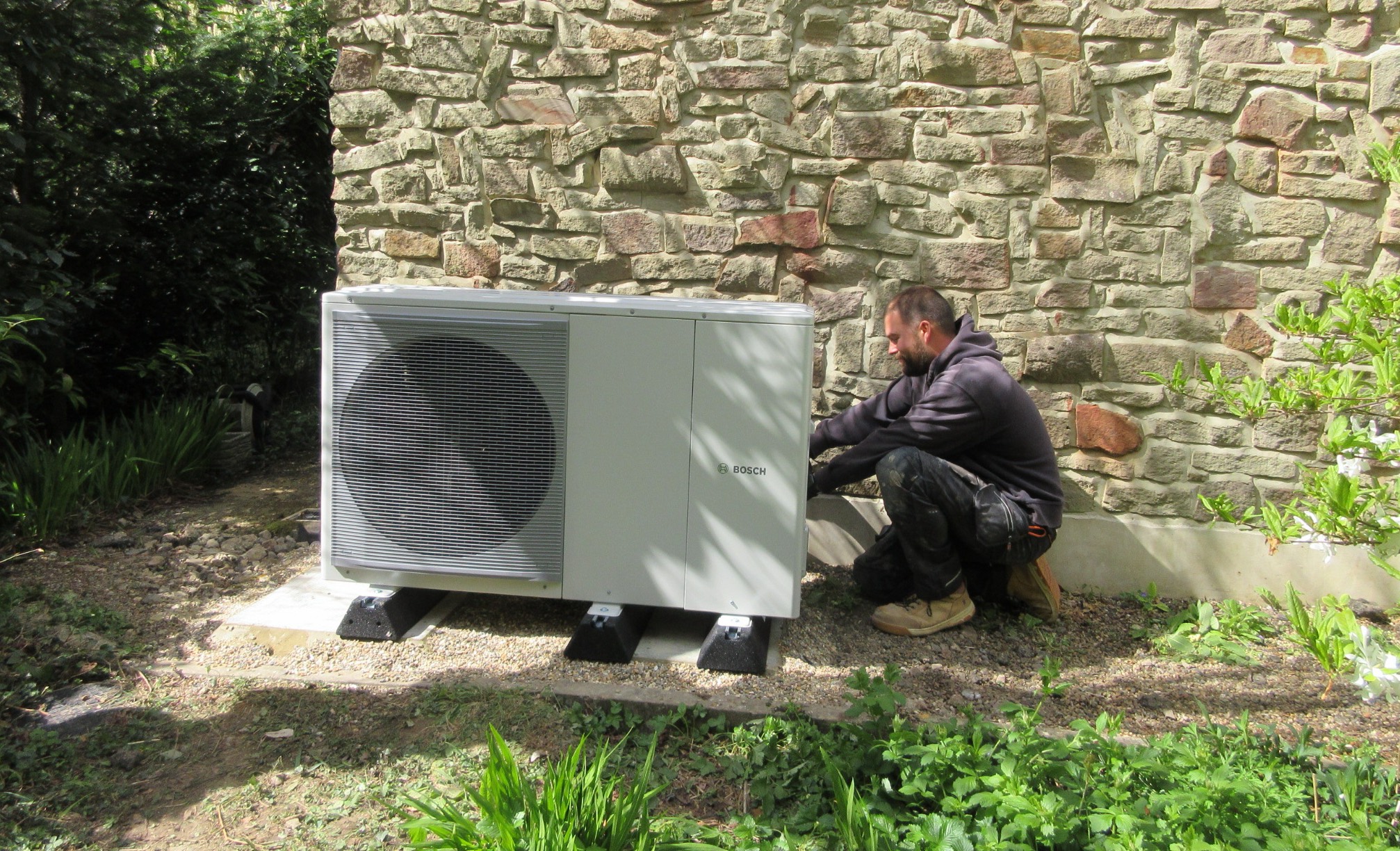
Can Air Source Heat Pumps Heat Radiators?
Wondering if your radiators will work with a heat pump? Let’s clear it up.
With rising energy costs and a growing push toward renewable heating, more UK homeowners are considering air source heat pumps as an alternative to gas boilers. But one common question often crops up early in the decision-making process: can air source heat pumps heat radiators?
The short answer is yes. Air source heat pumps can work with radiators, and in many homes, they already do. However, there are a few important considerations around radiator size, system design, and heat output that determine how well it all works together.
Here’s what you need to know if you’re thinking about a heat pump installation and want to understand whether your current radiators can stay put.
How Air Source Heat Pumps Work
Unlike traditional boilers that burn fuel to generate high-temperature heat, air source heat pumps work by extracting heat from the air outside and transferring it indoors. They do this using a refrigerant cycle — similar to a fridge, but in reverse.
The result is a steady supply of low-temperature hot water (typically between 35°C and 55°C) rather than the 60°C+ water you get from most gas boilers. This makes heat pumps extremely energy efficient, but it also means they need a well-designed system to deliver consistent comfort.
So, Can Air Source Heat Pumps Heat Radiators?
Yes, as long as the radiators are properly sized for the lower flow temperatures that heat pumps use.
If your home was built with a traditional boiler in mind, the radiators were likely chosen to operate at higher temperatures. That means they might not provide enough heat when paired with a heat pump unless:
- They’re replaced with larger radiators
- The heat pump is a high temperature model
- Your system is optimised with good insulation and low heat loss
Heating engineers will typically carry out heat loss calculations for each room in your home before a heat pump installation. This helps determine whether existing radiators can stay or if replacement radiators are needed.
What Type of Radiator Works Best with a Heat Pump?
Radiators for heat pumps are usually larger in surface area than those for gas boilers. This is because the lower water temperature needs more surface area to deliver the same amount of heat.
Some popular options include:
- Double panel or double convector radiators: These offer more surface area in the same footprint.
- Low temperature radiators: Designed to work efficiently at heat pump temperatures.
- Designer radiators: Stylish options are available that still meet performance needs.
- Fan-assisted radiators: These use a small fan to boost warm air output in particularly cold spaces.
While cast iron radiators are known for retaining heat, they’re not always suitable unless their footprint is significantly larger.

Do I Need to Replace All My Radiators?
Not necessarily. Many homes will only need to replace radiators in key rooms, like large lounges or draughty spaces with high heat demand. Bedrooms and smaller areas may be fine as they are.
It all depends on:
- The amount of heat each room needs
- Your home’s insulation
- Your preferred room temperatures
- The specific heat pump model chosen
An experienced heating engineer will walk you through your options and make sure the heating system is balanced and efficient across the whole home.
What About Underfloor Heating?
If you’re doing major renovations, underfloor heating is another popular option with air source heat pumps. It works at even lower temperatures than radiators and offers excellent energy efficiency.
However, it’s not required. Plenty of UK homes use radiators with a heat pump very effectively, especially with the right planning.
The Benefits of Matching Radiators to Your Heat Pump
- Lower energy bills: A properly balanced system uses less energy, meaning less money to heat your home.
- Comfort: No cold spots, slow warm-up times, or underperforming radiators.
- Longevity: Your heat pump won’t be overworked trying to hit impossible targets.
- Better energy efficiency: A system that’s designed to work together performs at its best.
Expert Advice Makes All the Difference
A successful heat pump installation doesn’t start with the unit, it starts with the system. That means understanding how your home retains heat, how your radiators behave, and how to ensure the right output from room to room.
At KD Jones Heating Engineers, we take all of this into account from day one. Whether you’re upgrading from gas or building something new, our experienced team carries out detailed heat loss calculations and helps you decide the best type of radiator for your setup.
We also advise on insulation, system upgrades, and any controls that can make your system smarter, simpler, and more efficient to run.
📧
Radiators and Heat Pumps FAQs
Do I need new radiators with a heat pump?
Only if your current ones aren’t large enough to provide the required heat at lower temperatures. We assess this room by room.
Will my radiators feel cold if I use a heat pump?
They may feel cooler to the touch compared to a boiler-fed system, but they’ll still heat the room effectively when properly sized.
Can I mix old and new radiators in the same system?
Yes, as long as they’re matched in output and efficiency. A heating engineer will ensure the whole system is balanced.
What flow temperature do heat pumps use?
Most operate between 35°C and 55°C. High temperature models can go higher but may sacrifice efficiency.
Can I still use a hot water cylinder with a heat pump?
Yes. In fact, most systems include one. Heat pumps can provide hot water just like a boiler, though the cylinder is often slightly larger.
Are heat pumps compatible with smart heating controls?
Absolutely. Zoning and smart thermostats are a great way to improve efficiency and comfort.








